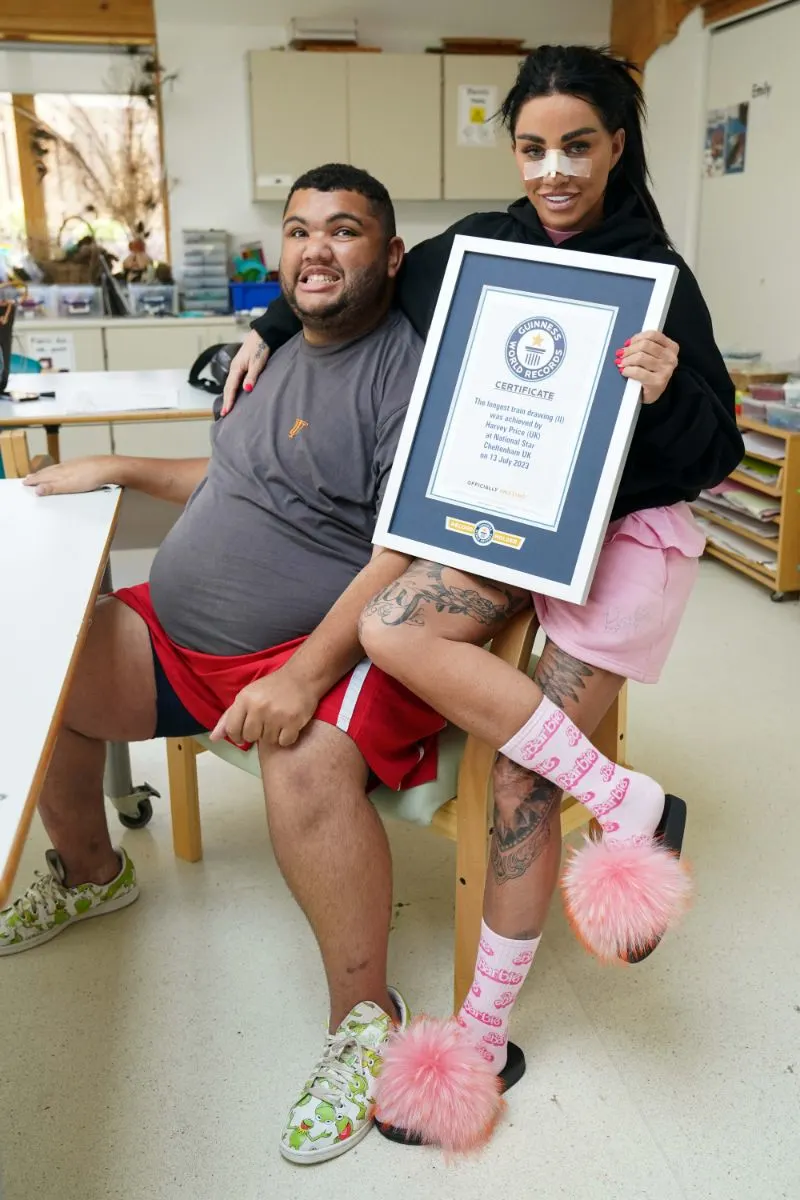Who are the famous people with Prader-Willi syndrome?
Introduction
Prader-Willi Syndrome (PWS) is among the rare genetic disorders.
It causes obesity, intellectual disability, and shortness of height. However, it has a varied presentation. It may be more severe in some and less severe in others.
Though it would cause significant disability in most of those affected by the condition, many can learn to live with the condition. Many individuals may not only learn to live more or less independently.
They might even gain popularity.
However, most of those living with the condition would need some support. Nonetheless, most can learn to live with minimal support.
The condition is extremely rare. There are an estimated 10,000 to 20,000 people living with the condition in the US. The condition is not only rare and has a varied presentation, so precise numbers are unclear.
Before we explore famous people directly and indirectly affected by the condition, it is vital to understand that this is a multi-organ disease. Its presentation is very different.
Some people living with this condition report significant physical and mental disability. However, others may have lesser disability. This explains why some are more likely to succeed even with the condition.
As a rule, the condition causes significant developmental delay in a child.
It causes language delay, motor delay, endocrinal issues, obesity, behavioral problems (anxiety, ADHD, autistic features, and more), increased pain threshold, and more.
Most famous people are those who are indirectly affected by PWS, like those living with a child with PWS.
And, then, there are those who are making a significant contribution to the field of care and investigation on PWS.
Famous People with Prader-Willi Syndrome (PWS):
Understanding that differently-abled people can live close to normal life with some assistance and emotional support is vital.
This is vital to understand both for those affected by the condition and caretakers.
Caretakers are more likely to seek information about PWS.
It is worth understanding that if someone near and dear to you is living with PWS, he or she can live a successful life with some support. Of course, caretakers would also need to learn about the condition.
This article is both to encourage those living with PWS and their caretakers.
It is to show them how the right kind of approach can make a difference. With the right strategy and approach, those diagnosed with PWS can live a fulfilling life.
This article discusses mainly people who are famous for making a significant difference. These people are helping provide better care to PWS patients.
Harvey Price

Katie Price and her son Harvey, after he was presented with the Guinness World Record for the longest drawing of a train – @Getty
Amid fame’s relentless spotlight, Katie Price faced a deeply personal struggle, that of her son living with Prader-Willi Syndrome (PWS).
Once a celebrity whirlwind, her life transformed into an extraordinary love, patience, and resilience journey.
With his gentle smile and unwavering strength, Harvey was Katie’s pride and joy.
PWS brought daily challenges, from monitoring his insatiable appetite to securing the kitchen to prevent overeating.
Katie became an advocate, shedding light on PWS’s complexities and the struggles families like hers faced.
Through it all, their bond remained strong. Katie found strength in Harvey’s resilience and learned that a mother’s love and determination could move mountains.
Robert
Though not a celebrity, Robert is an example of how those living with PWS can live independently with some assistance and even have a job.
Robert is a remarkable individual who has been living with Prader-Willi syndrome (PWS) for much of his life.
PWS is a complex genetic disorder that presents unique challenges, and Robert’s journey is a testament to his resilience and the support he has received from his family and community.
Robert and his family have worked tirelessly to create an environment that ensures his safety and well-being.
Despite challenges, Robert has shown tremendous determination in his life.
He has tackled his condition with a positive attitude and a strong desire to live life to the fullest.
His family’s unwavering support and commitment have played a crucial role in helping him maintain a healthy lifestyle—Robert is now over 30. He works two days a week at the YMCA.
Robert’s journey is a reminder of the resilience and strength of those living with PWS.
It also underscores the importance of a supportive community and the vital role that families play in providing the necessary care and resources for individuals with this rare genetic disorder.
Despite the daily challenges, Robert continues to inspire those around him with his determination and a zest for life that defies the obstacles presented by PWS.
Jayden Hedstrom
Susan Hedstrom’s dedication to Prader-Willi syndrome (PWS) research is nothing short of inspiring. Her story is one of a mother’s unwavering love and determination to improve the lives of those affected by PWS.
Susan is the Executive Director of the Foundation for Prader-Willi Research (FPWR), and her journey in this role is deeply personal.
Her son, Jayden, was diagnosed with Prader-Willi Syndrome, a rare genetic disorder characterized by an insatiable appetite, developmental challenges, and complex medical needs.
Instead of accepting PWS as a static condition, Susan Hedstrom chose to take action. Her experience as a mother ignited a passion to make a difference for Jayden and all individuals with PWS.
In 2009, Susan joined FPWR and became a driving force behind accelerating PWS research.
The foundation’s mission is to find treatments and, ultimately, a cure for PWS, and Susan took on this challenge with unwavering determination.
She recognized the need to gather a team of proactive and tireless individuals to work collaboratively towards these goals.
One of her significant contributions to the PWS community was the development of the “One SMALL Step” walk program. Under Susan’s leadership, this program has raised over $15 million for PWS-related research.
These funds have been instrumental in advancing scientific understanding and supporting research efforts that are critical in changing the future of PWS.
Sheila Inwards’ son
Sheila Inwards is a remarkable individual who brings a wealth of personal and professional experience to her role as a Support and Training Officer at PWSA UK.
She joined the organization in July 2021, driven by a deep sense of motivation and a heartfelt commitment to positively impacting the lives of those affected by Prader-Willi Syndrome (PWS).
What sets Sheila apart is her unique perspective as a mother to a 36-year-old son with PWS. Her personal journey has equipped her with an intimate understanding of the challenges and nuances that individuals and families face when dealing with PWS.
Sheila’s motivation springs from her desire to channel this firsthand knowledge into supporting and training others on behalf of PWSA UK.
Sheila’s background in her early years and her experience in supporting families through fostering and respite care have further honed her skills in providing compassionate and effective support.
She is also a Makaton tutor, demonstrating her commitment to helping individuals with speech and language communication difficulties.
Her extensive knowledge and personal experience in supporting her son’s speech difficulties make her a valuable resource for training and offering support with empathy.
Her passion for her role is palpable, and Sheila looks ahead to the future with optimism.
She eagerly anticipates the opportunities to connect with individuals and families, either through Zoom meetings or face-to-face interactions.
Sheila’s motivation is rooted in a genuine desire to make a positive difference in the lives of those affected by PWS and to offer a helping hand on their unique journeys.
Her presence within the PWSA UK team is a source of inspiration, bringing hope and support to the PWS community.
Bonus
Jessica Bohonowych
She is a remarkable advocate and a prominent figure in the Prader-Willi syndrome (PWS) community.
What sets Jessica apart is her tireless commitment to creating the Global PWS Registry, a pioneering initiative that has transformed the landscape for individuals and families affected by PWS.
Recognizing the need for a comprehensive and accessible database to gather crucial data, Jessica and her family took it upon themselves to bring the registry to life.
The Global PWS Registry is more than just a data collection; it represents hope, support, and unity.
It is a testament to Jessica’s unwavering dedication to the PWS community. This online platform allows individuals and families to voluntarily share their experiences, medical histories, and symptoms related to PWS.
This wealth of information plays a pivotal role in advancing PWS research, as it offers researchers insights into the condition, potential treatment options, and areas of concern.
The Bottom Line
In conclusion, the stories of famous individuals living with Prader-Willi syndrome (PWS) test the strength, resilience, and potential within every individual, regardless of their genetic challenges.
While PWS presents complex and unique obstacles, these remarkable individuals have not allowed the syndrome to define the entirety of their lives.
The advocacy work of individuals like Jessica Bohonowych, the inspiring journey of Ethan Rice, and the dedication of Susan Hedstrom to PWS research have all played pivotal roles in raising awareness, promoting research, and offering support to the PWS community.
Their stories emphasize the importance of proactive and compassionate individuals who strive to make a difference and drive change.
The PWS community continues to thrive, united by a collective determination to improve the lives of those living with the syndrome.
The advocacy efforts and contributions of these individuals have propelled the understanding of PWS, fostered a sense of community, and raised hope for future breakthroughs in treatment and care.
As the world gains more knowledge about Prader-Willi syndrome, these famous individuals, and countless others within the PWS community inspire us all to see beyond the challenges and focus on the remarkable abilities, potential, and resilience within each person.
Their stories remind us that with dedication, support, and unwavering determination, we can overcome even the most daunting obstacles and work together to create a brighter future for those living with Prader-Willi syndrome.
